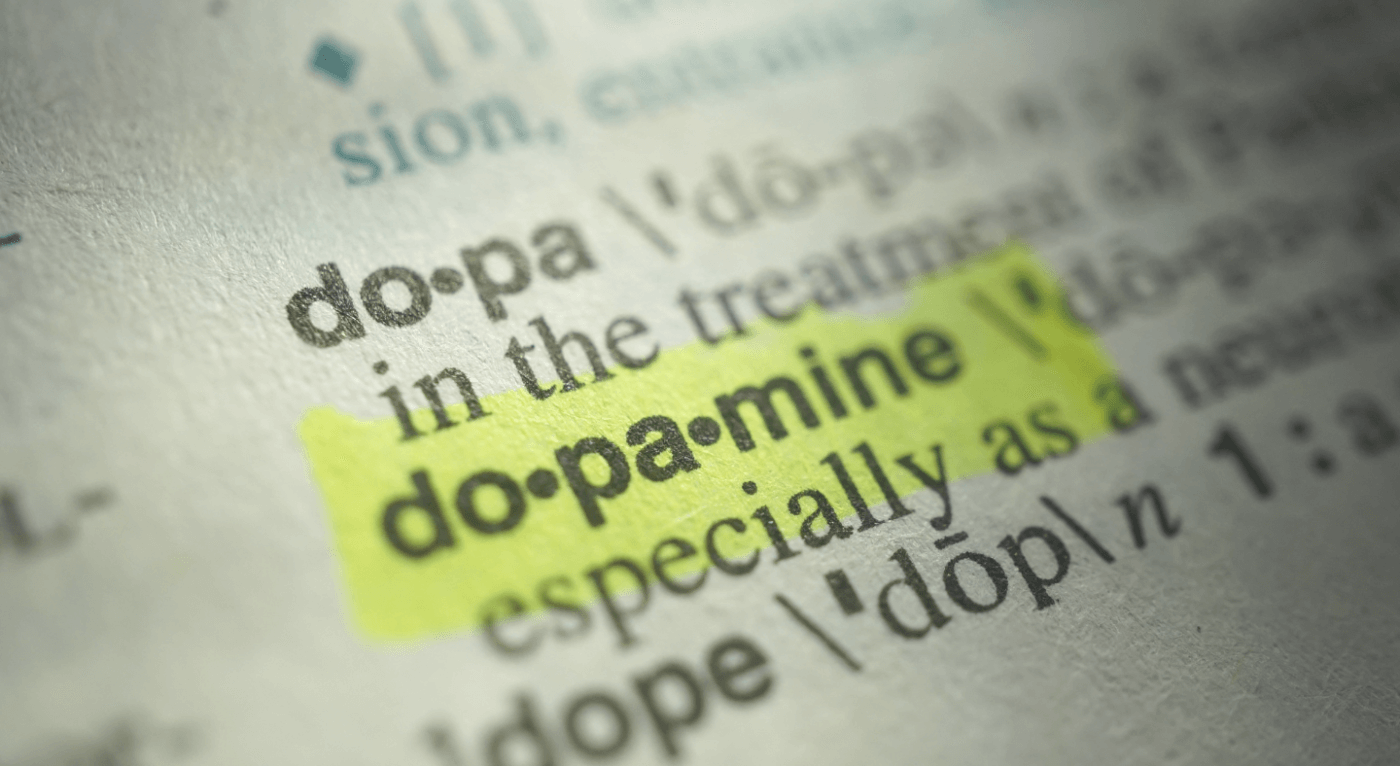Neurotransmitters and ADHD: What You Should Know
When it comes to understanding ADHD (Attention-Deficit/Hyperactivity Disorder), one of the most important places to look is the brain. Specifically, we look at how the brain communicates—and that’s where neurotransmitters come in.
What Are Neurotransmitters?
Neurotransmitters are chemical messengers that transmit signals between neurons (nerve cells) and other cells in the body. These tiny but powerful compounds help regulate everything from mood and focus to sleep, energy, digestion, and even immune response. The human body has around 100 neurotransmitters, and over 40 of them are active in the brain and nervous system.
When neurotransmitter levels are too high or too low, or when receptor sensitivity is off, a wide range of symptoms can occur. Imbalances have been linked to not only ADHD but also to anxiety, depression, Parkinson's disease, fibromyalgia, borderline personality disorder, and Alzheimer’s disease.
Neurotransmitters and ADHD
ADHD is most commonly associated with dopamine dysregulation and serotonin deficiency. However, other key neurotransmitters—such as GABA, histamine, and the catecholamines (which include dopamine, norepinephrine, and epinephrine)—also play important roles in ADHD symptoms.
Let’s take a closer look at five of the most relevant neurotransmitters in ADHD:
1. Dopamine
Dopamine is one of the most widely discussed neurotransmitters in ADHD. It plays a major role in motivation, reward-seeking behavior, focus, and emotional regulation. Low dopamine activity in key areas of the brain can lead to symptoms like difficulty with attention, low motivation, impulsivity, and mood dysregulation. It's also involved in the gut-brain connection, meaning low dopamine may also impact digestion.
2. Serotonin
Often thought of as the "feel-good" neurotransmitter, serotonin helps regulate mood, sleep, appetite, and impulse control. Low levels of serotonin may lead to mood instability, sleep issues, and increased anxiety—all of which can intensify ADHD symptoms. Because serotonin is primarily produced in the gut, digestion and gut health play a huge role in serotonin status.
3. GABA (Gamma-Aminobutyric Acid)
GABA is the brain’s primary inhibitory neurotransmitter, meaning it helps calm the nervous system. It’s critical for regulating anxiety, hyperactivity, and sleep. In ADHD, low GABA activity may lead to racing thoughts, difficulty calming down, irritability, and poor sleep. Elevated GABA, in contrast, can sometimes contribute to brain fog and low motivation.
4. Histamine
Though best known for its role in allergic responses, histamine is also a neuromodulator that affects energy, motivation, sleep-wake cycles, and focus. Histamine imbalances—especially when combined with nutrient deficiencies or methylation issues—can show up as mood swings, fatigue, hyperactivity, or sleep disruptions. Many people with ADHD and histamine intolerance experience a “wired but tired” state and may be sensitive to foods high in histamine.
5. Catecholamines: Dopamine, Norepinephrine & Epinephrine
Catecholamines are a group of neurotransmitters made from the amino acid tyrosine. They play a key role in attention, stress response, mood, and focus.
Norepinephrine helps with focus and alertness. Low levels may cause poor attention, low motivation, and low energy.
Epinephrine (adrenaline) is involved in the fight-or-flight response. Dysregulation may result in anxiety, sleep problems, and restlessness.
When these are out of balance, you may feel overstimulated, underfocused, or stuck in cycles of burnout and fatigue.
Neurotransmitter Imbalances: What Do They Look Like?
Here’s a quick reference table showing what elevated or decreased levels of specific neurotransmitters might look like:
Neurotransmitter | ↑ Elevated Levels | ↓ Decreased Levels |
|---|---|---|
| Aspartic Acid | seizures, anxiousness | tiredness, low mood |
| Dopamine | poor intestinal function, attention issues, developmental delay | addictions, cravings |
| Epinephrine | sleep difficulties, anxiousness, attention issues | fatigue, lack of focus |
| Glutamate | anxiousness, low mood, seizures, immunological symptoms | tiredness, poor brain activity |
| Histamine | allergic responses, sleep difficulties | feeling tired |
| Norepinephrine | anxiousness, stress, hyperactivity, high blood pressure | lack of energy, lack of focus, lack of motivation, low mood |
| PEA | mind racing, sleep difficulties, anxiousness | difficulty paying attention, difficulty thinking clearly, low mood |
| GABA | hyperactivity, anxiousness, sleep difficulties | uncontrolled hyperactivity, uncontrolled sleep difficulties, uncontrolled anxiousness |
| Glycine | stress-related symptoms, low mood, anxiousness | poor muscle control & muscle tone, sleep apnea, lack of energy |
| Taurine | hyperactivity, anxiousness, sleep difficulties | uncontrolled hyperactivity, uncontrolled sleep difficulties, uncontrolled anxiousness |
How Nutrition Impacts Neurotransmitters
You can support your neurotransmitter balance through targeted nutrition and lifestyle strategies. Many neurotransmitters are made from amino acids (found in protein), and their production depends on having the right cofactors—nutrients like vitamin B6, vitamin C, magnesium, iron, zinc, omega-3 fatty acids, and more.
For example:
Tryptophan (from turkey, seeds, oats) is the precursor to serotonin—but only if you have enough B6.
Tyrosine (from eggs, dairy, meats) is a precursor to dopamine and norepinephrine.
Glutamine supports the production of GABA and glutamate.
Consuming enough protein and getting a variety of whole, nutrient-dense foods is key to healthy neurotransmitter production. Supporting the gut—where many neurotransmitters are produced or modulated—is just as critical.
How We Test Neurotransmitters in Functional Medicine
One of the most useful tools for assessing neurotransmitter function in a holistic ADHD protocol is the Organic Acids Test (OAT). While this test doesn’t measure neurotransmitters directly in the brain, it does evaluate metabolic markers that reflect neurotransmitter activity, nutrient status, oxidative stress, and gut health—all of which influence neurotransmitter production and balance.
For example:
Low levels of certain organic acids can indicate impaired dopamine or serotonin synthesis.
Elevated levels of phenylacetic acid or vanilmandelate (VMA) can reflect how well catecholamines are being metabolized.
Markers for oxidative stress and B-vitamin status help identify whether the body has the nutritional support needed to make and regulate neurotransmitters effectively.
By reviewing these patterns, we can create individualized nutrition and lifestyle protocols to better support brain health, focus, emotional regulation, and resilience in ADHD.
Final Thoughts
Neurotransmitters are complex, but understanding their role in ADHD can provide helpful insights into behavior, focus, emotional regulation, and energy levels. If you’ve been struggling with ADHD symptoms and aren’t sure where to start, looking at neurotransmitter health—through nutrition, lifestyle, and functional testing—can be a game changer.
Feeling overwhelmed by all this information or unsure where to start? You're not alone—and you don't have to figure it out on your own.
I offer personalized, one-on-one consultations where we dive deep into your health history, symptoms, and functional lab results—like the Organic Acids Test—to uncover what's really driving your ADHD symptoms. From there, we create a clear, practical plan to help support your brain, body, and day-to-day life.

